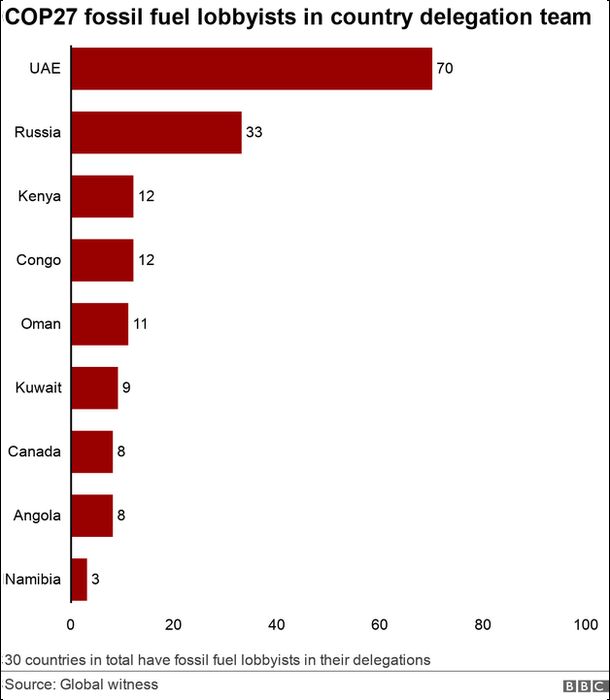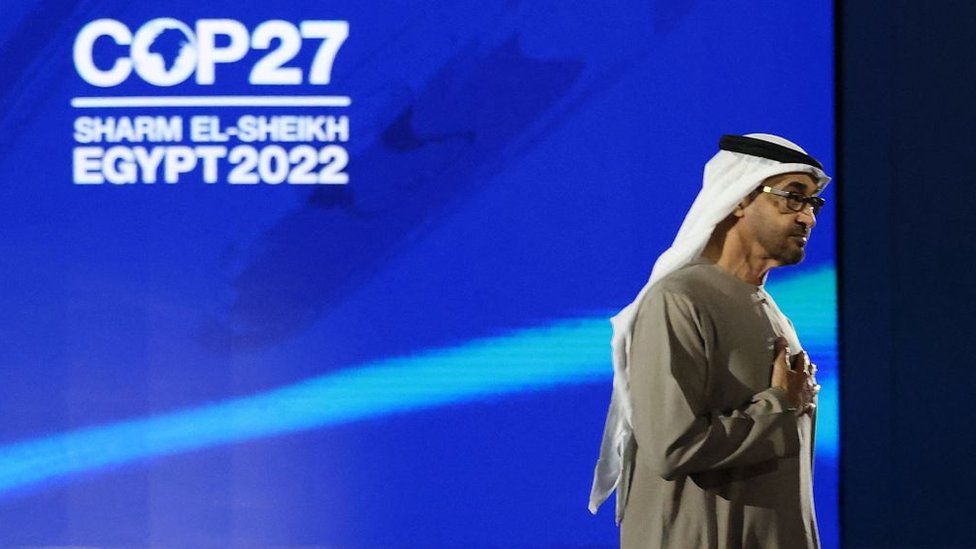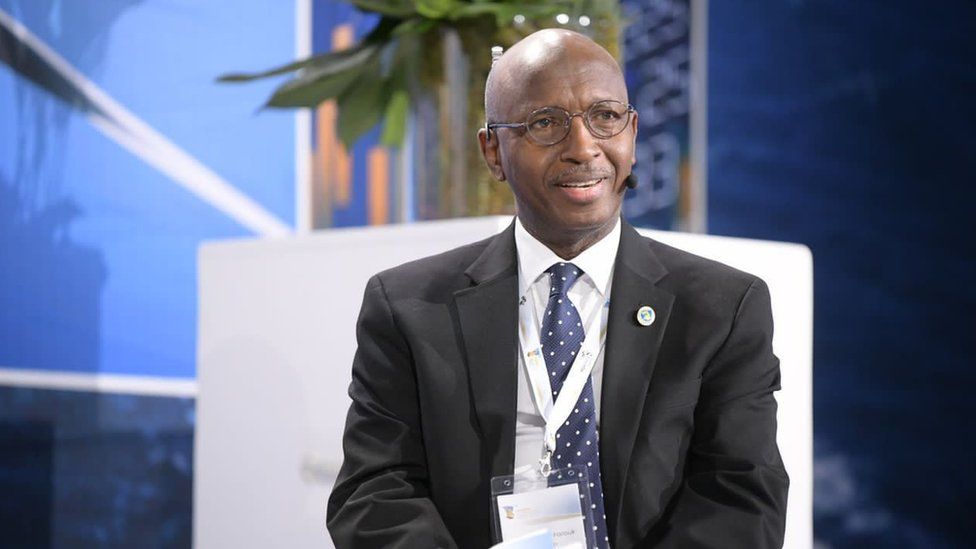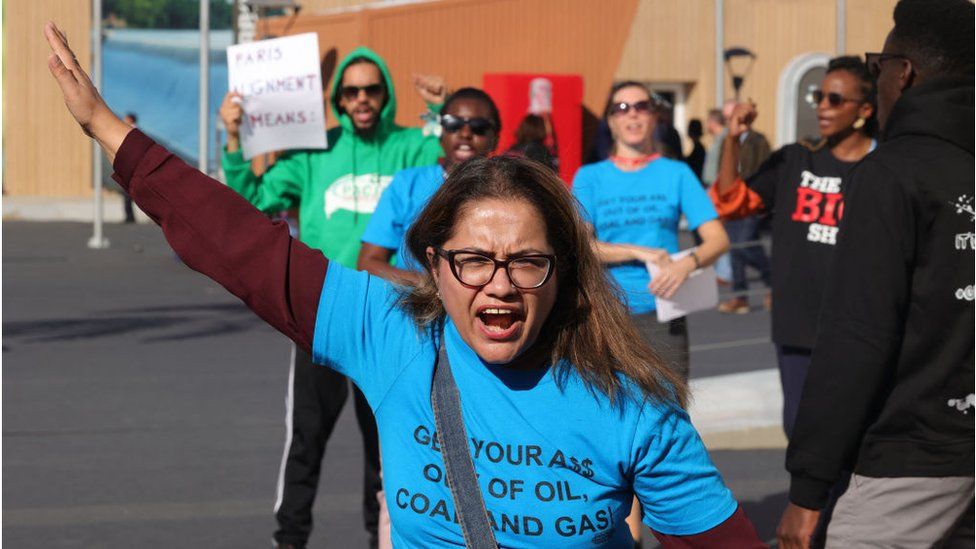BBC News 10 November 2022
The number of delegates with links to fossil fuels at the UN climate summit has jumped 25% from the last meeting, analysis shared with the BBC shows.
Campaign group Global Witness found more than 600 people at the talks in Egypt are linked to fossil fuels.
Around 35,000 people are expected to attend the COP27 summit in the Red Sea resort of Sharm el-Sheikh.
These conferences have always attracted significant numbers from the coal, oil and gas industries, who are keen to influence the shape of the debate.
At last year's summit in Glasgow, a similar analysis of official attendance lists found 503 delegates connected to fossil fuels.
This year that figure has gone up to 636.
"COP27 looks like a fossil fuel industry trade show," said Rachel Rose Jackson, from Corporate Accountability, one of a group of campaigners who released the data along with the Corporate Europe Observatory.
"We're on a carousel of madness here rather than climate action. The fossil fuel industry, their agenda, it's deadly. Their motivation is profit and greed. They're not serious about climate action. They never have been and they never will."
The researchers counted the number of individuals registered who were either directly affiliated with fossil fuel companies or attending as members of national delegations that act on behalf of the fossil fuel industry.
The data shows that this year, there are more fossil fuel lobbyists than total delegates from the ten countries most impacted by climate change, including Pakistan, Bangladesh and Mozambique.
The biggest single delegation at COP27 is from the United Arab Emirates, who will host COP28 next year.
They have 1,070 people on the ground here, up from just 170 last year.
The analysis found that 70 of that delegation were connected to fossil fuel extraction.
Russia's delegation has 33 lobbyists for oil and gas in their delegation of 150.
African lobbyists push to exploit reserves
"If you are not at the table, you'll be on the menu". That's the view of Dr Omar Farouk Ibrahim, the head of the African Petroleum Producers Organisation, speaking to the BBC at COP27.
He said he was here to try and influence negotiators to support the development of oil and gas in Africa. He said there were 600m people across the continent who don't have access to electricity.
He rejects the idea that Africa should forgo it's large reserves of oil and gas in exchange for renewable technology and funding from the richer nations.
"We've been failed in the past. And there is no guarantee that they wouldn't fail us again," he told BBC News.
But rather than being a powerful influence, Dr Ibrahim says his group and others struggle to make an impact at the highest levels.
"I guarantee you, even if we are to pay to come here, they will not allow us to come because they don't want the other voice heard."
There is some evidence that the arguments being made by those in favour of oil and gas are having an impact.
There has been a "dash for gas" recently among some African nations, keen to exploit their resources at a time of increased demand in Europe and elsewhere.
Senegal is one of the African countries that wants to exploit its recently discovered reserves of gas.
"What is important for us is how can we use these resources to develop our country and reinforce our economy and to export it to emerging and developed countries," said Idy Niang, from the Senegal delegation.
But others attending were clear that the climate situation was now so serious, there should be no room at any COP for those backing fossil fuels.
"If you want to address malaria, you don't invite the mosquitoes," said Phillip Jakpor, who's from Nigeria and works with Public Participation Africa.
"As long as we have the fossil fuel lobby and machinery in full swing, we will not make progress and we have not made progress," he told BBC News.
Additional reporting by Esme Stallard.





